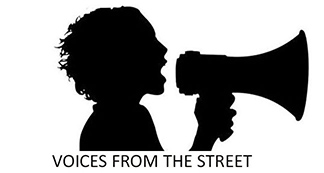Shut out of medicare by shame: Goar
Carol Goar
Sep 02 2014
Life on the streets takes a punishing toll.
It’s not just the elements, the hit-and-miss meals or the nights spent on park benches and heating grates. It’s the violence, the loneliness, the drug dependence, the downward spiral. Two out of three homeless people have a mental disorder or a history of substance abuse. Most are so beaten down they’ve stopped caring.
The last thing they want is a family doctor.
What they’ve seen of the health care system — typically the waiting room of an emergency ward or a walk-in clinic — convinces them they’ll just be stigmatized. Even when their condition is debilitating, the staff will put them at the bottom of the priority list. The doctor will assume they’re looking for free drugs. The other patients will stay away.
Pat Capponi, who spent years in psychiatric hospitals and seedy rooming houses, knows what it’s like. But she has also learned the cost of neglect. The Toronto author and advocate for the homeless is now using her connections to build a bridge between “our folks” and a handful of Toronto physicians with a strong sense of social justice.
Her biggest ally is her doctor, Pauline Pariser, who practices as a member of the Taddle Creek Family Health Team. Pariser also serves as co-ordinator of the Mid-West Toronto Health Link, a provincially backed network of health-care professionals committed to reaching out to people in the community who live in poverty, often with mental illness and/or addictions and face daunting social problems.
Together the duo — along with willing partners from both of their worlds — hold workshops for homeless people and training sessions for family doctors willing to take on marginalized patients.
They started quietly 14 months ago. They’ve now held four workshops and connected about 80 street people to family doctors. I had the opportunity to sit in on one of their meetings. It was held at Sistering, a non-profit organization that offers a safe place, a hot meal, a shower, laundry and referrals to social agencies to transient and precariously housed women.
Approximately 20 women showed up. A few were ready to seek help. Most were guarded but aware they needed to take better care of themselves.
Capponi stayed in the background, letting members of the Voices from the Street, a self-help group for marginalized Torontonians, tell their stories.
The anecdotes were raw and powerful. All the speakers had been addicted to hard-core drugs. They’d all run up against medical professionals who judged and lectured them. By luck, word of mouth or referral, each finally had found a doctor she could trust. “I cursed her at first but today I’m clean and sober and I know my body,” said Stacey, who spent 18 years as a crack addict. “Please get a doctor.”
Pariser, who has been a family doctor for more than 30 years, spoke next. She acknowledged that many physicians have “an attitude problem.” She recognized how much courage it takes to tell the truth to a stranger. She accepted that people who live on the margins of society don’t have OHIP cards, don’t show up for appointments, don’t tell the whole truth at first and don’t trust anyone. “I’ve gotten to know a lot of what works and what doesn’t,” she said. “A lot of the time you’re frightened and you don’t want to know what’s wrong. But you can leave it too late.”
She described in detail the seminars HealthLink puts on for family doctors: putting a human face on street people, equipping physicians to treat them with respect, connect them to community agencies, answer their questions.
“A family doctor gets to know people over many years,” she said. “Going from clinic to clinic, you don’t have anyone who can see you through stuff. You don’t have an advocate to fight for you in the health-care system. I think you deserve that.”
Her welcoming approach unleashed a flood of questions on everything from rape to tuberculosis. It was the most freewheeling of the four workshops, Capponi said, possibly because all the participants were women (the other three were mixed gender).
Across Ontario, there are 47 community HealthLinks working to connect people with family doctors. Any one of them could implement a program like this. All it takes is a handful of open-minded physicians, a few street-savvy bridge-builders and a deep conviction that no one should be shut out — or shamed out — of medicare.
Credit: Toronto Star

